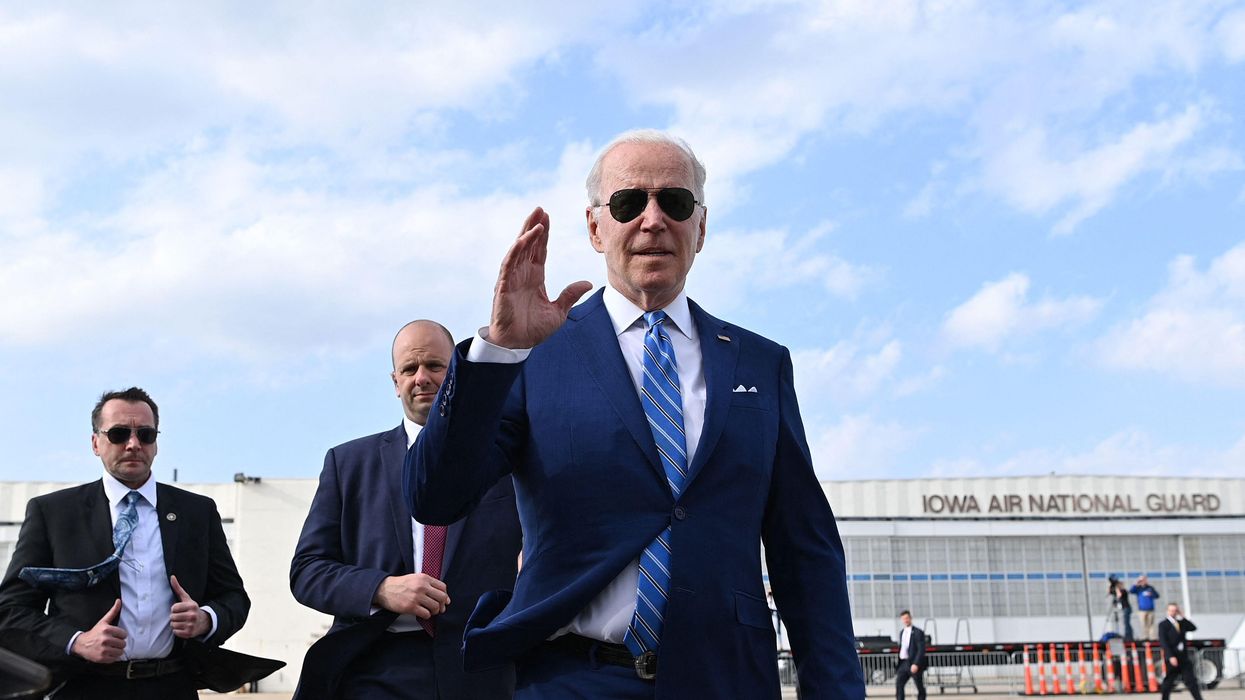Rob Richie is president and CEO of FairVote.
No election in the United States is as important as our elections for president. Yet if the last two cycles have told us anything, it’s that how we nominate presidents is broken and deeply unrepresentative – a process as much about dumb luck as it is about candidate quality or ability to unify voters. But we may be about to see a change.
The Democratic Party would be a trailblazer if it follows through on its new plan to have states apply to be among the early primary states, with selection based on clear criteria. That would break up the monopoly of the same states – including the largely racially and ethnically homogeneous Iowa and New Hampshire – voting first again and again.
According to Ballotpedia, leading Democratic contenders Joe Biden, Bernie Sanders and Elizabeth Warren each spent about one out of every three days on the 2020 campaign trail in just four states – Iowa, New Hampshire, Nevada and South Carolina. The geographic accident of coming from a state next to New Hampshire has boosted candidates like Michael Dukakis, John Kerry, Bernie Sanders, Paul Tsongas and Mitt Romney.
The Democratic Party’s change is only a first step to how we should reimagine presidential nominations, and we should go further. To make the voices of more Americans matter, a truly fair process should end with nearly all states having an equal vote.
After early state contests winnow the field, the remaining states should hold a de facto “national primary.” This would give far more voters a real voice in the process.
With a national primary, parties could also avoid the lurking threat of a “brokered convention” if no candidate earns a majority of delegates. Instead, the national primary would put that decision in voters’ hands. And by scheduling congressional primaries for the same day, states could also ensure that a high-turnout, representative electorate decides their congressional nominations.
Beyond the exaggerated impact of quirky geography and lack of a national primary, there’s another big, easily correctable problem with our current nominating process: limiting voters to one choice no matter how large the field. That limitation has profound implications, particularly with the recent explosion in early and mail voting.
In 2020, more than 3 million Democrats cast their presidential primary vote for candidates who had withdrawn from the race. These voters may have excitedly mailed in a ballot for Pete Buttigieg or Amy Klobuchar, only to have those candidates drop out – after the ballot was returned but before the official primary date. In Washington state, about one in four voters “wasted” their vote this way; the same proportion of Washington Republicans also suffered this fate in 2016.
That’s the most obvious reason why both parties should fully embrace ranked-choice voting. With a ranked-choice primary ballot, voters earn the option to rank candidates in order of preference: first, second and so on. If voters’ first choice is still in the race, their ballots will count for that candidate. Otherwise, those ballots will count for their next-ranked candidate.
With their different presidential primary rules, each party has other reasons to turn to ranked-choice voting. For Democrats, candidates must earn 15 percent support within a state to earn delegates. Votes for candidates under 15 percent don’t count when it’s time to divvy up delegates; ranked-choice voting would simply allow a voter’s ballot to count for their next-ranked candidate who is viable.
On the Republican side, the most basic reason is at play: majority rule. Republicans use a winner-take-all system for their presidential primaries: Whoever gets the most votes in a state wins all the delegates. But in crowded fields like 2008, 2012 or 2016, a candidate can win an early state with an extremely low portion of the vote, like 25 percent.
That winning candidate might only appeal to a narrow slice of the party; after all, the vast majority voted for someone else. That candidate could ride all-important “momentum” to frontrunner status, and end up not just a weak state winner – but a weak nominee.
With ranked-choice voting, Republicans could ensure a majority winner in every primary contest – and a strong, representative candidate as party standard-bearer. If no candidate has a majority of first-choice support in a state, the last-place candidate would be eliminated. Voters who ranked them “No. 1” would instead have their ballot count for their next-ranked choice. This process would continue until there’s a majority winner.
As state and national parties consider how to improve their presidential primaries, there are already promising developments to look to. In 2020, early Democratic voters in Nevada and all Democratic voters in Alaska, Hawaii, Kansas and Wyoming cast ranked-choice ballots in their party-run presidential contests. While millions of votes were wasted elsewhere, in these states, fully 90 percent of voters helped one of the active candidates earn delegates. Ranked-choice voting is also used in Maine’s and Alaska’s federal elections, and in over 50 cities nationwide.
With Democrats eyeballing the calendar and more states moving to ranked-choice voting, we have a real opportunity to make presidential primaries fairer and better for all. Let’s seize the chance.




















Trump & Hegseth gave Mark Kelly a huge 2028 gift